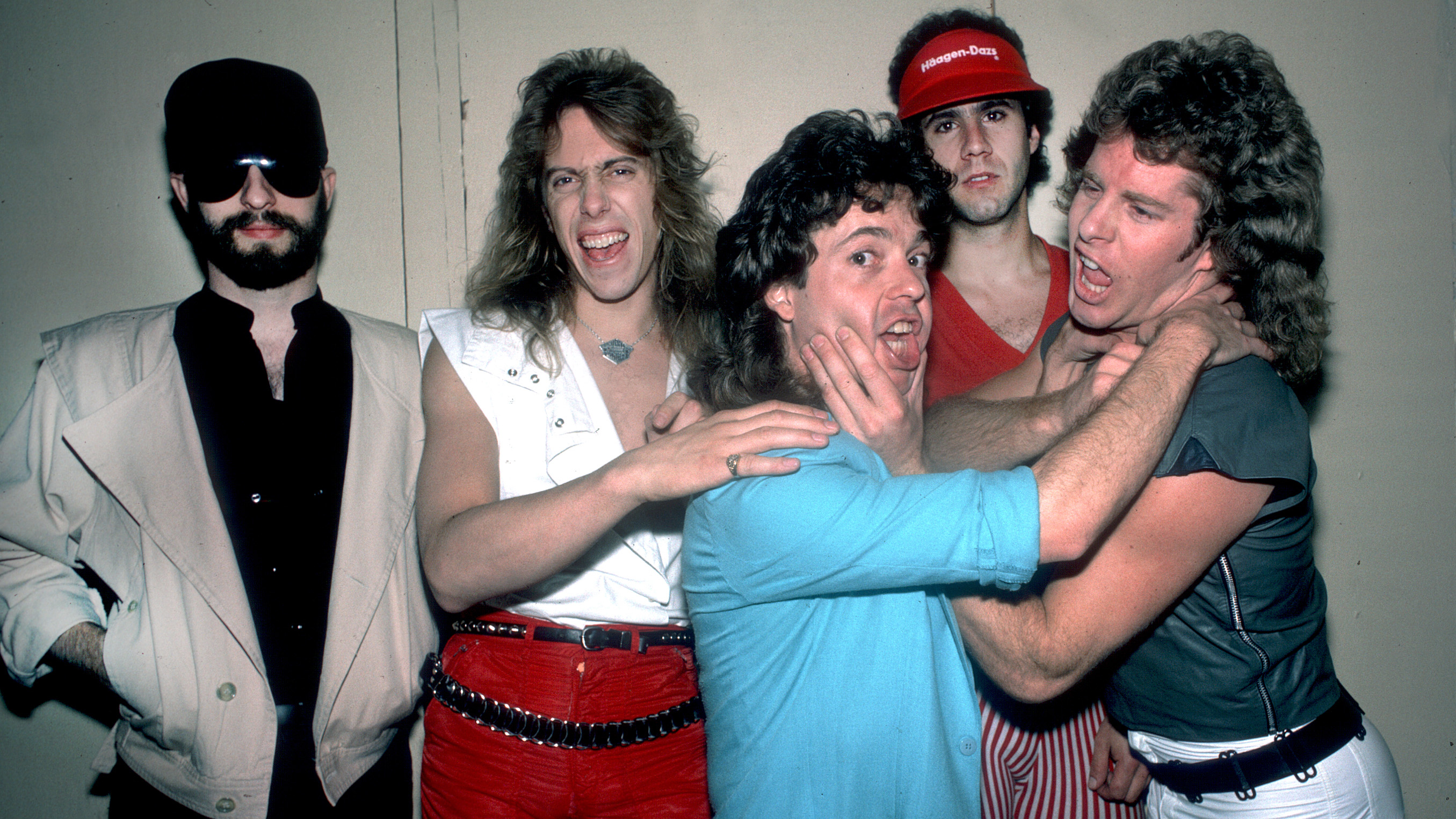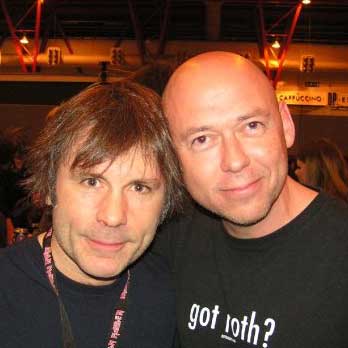“In the ’80s, everybody came out with a power ballad – and we had a great one. It was never a No.1 record, but it’s a song that defines that whole era”: How an incredibly unlucky band finally got a break with a soft rock classic
But was that song really about a nun who sells dope to school kids?

BEST OF 2025: Join us for our traditional look back at the news and features that topped MusicRadar's charts in 2025.
One of the big hit songs of 1984 was Sister Christian by San Francisco rock band Night Ranger.
But that success came after a run of bad luck that would have finished off a lesser band.
When these guys were recording their debut album in 1982, they almost lost one of their guitarists, Brad Gillis, when he was lured away to tour with Ozzy Osbourne after the death of Osbourne’s guitar player Randy Rhoads.
Before that debut album could be released, the band had to change its original name of Ranger to Night Ranger following a legal challenge from a country act named The Rangers.
And in the middle of their first major tour, Night Ranger’s record company went bankrupt.
But what the band lacked in luck, they made up for in fighting spirit.
Want all the hottest music and gear news, reviews, deals, features and more, direct to your inbox? Sign up here.
As bassist and co-lead vocalist Jack Blades told Classic Rock: “Sometimes, you’ve just gotta go out there and kick ass!”
The band was formed as Ranger in 1980, with Gillis and Blades joined by second guitarist Jeff Watson, keyboard player Alan Fitzgerald and drummer/co-lead singer Kelly Keagy.
From the start, it was evident that this was not a conventional rock ’n’ roll outfit. “We didn’t have a frontman per se, like Aerosmith or Led Zeppelin,” Blades said. “We had a singing bass player and a singing drummer, plus two lead guitar players and a keyboard player.
“We loved that British sound – Zeppelin, Deep Purple, Cream – and of course Thin Lizzy with that twin-guitar attack. But our sound was distinctly American, because that’s who we are.
“And we loved the great American rock bands, Van Halen and Journey. Journey were very melodic, and that had an influence on where we wanted to go.”
Maybe they should have sensed trouble when they signed with the Boardwalk label – founded by Neil Bogart, the former head of Casablanca Records, the disco powerhouse that eventually went bust despite having hit acts such as Donna Summer, Village People and Kiss.
But the first major problem came during the initial recording sessions, when Brad Gillis bailed to tour with Ozzy.
“We were all wondering if Brad would return,” Blades admitted. “He always said he’d come back.
“But one night there was a live radio broadcast from the Ozzy tour, Kelly Keagy came over to my house to listen to it, and Brad sounded so good, we looked at each other and said: ‘He’s never coming back!’
“It was a weird time for us. In fact, Ozzy and Sharon came to visit us in the studio while we were recording, and Ozzy had shaved his head for a joke, which freaked everybody out!”
Although Gillis kept working with Ozzy for much of that year – recording the live album Speak Of The Devil in New York in late September – he rejoined Night Ranger on a permanent basis in time for the release of the band’s debut in October.
As Blades put it: “Brad missed his buddies, and Ozzy understood that.”
Night Ranger’s debut album was titled Dawn Patrol. Released in late 1982, it was one of the best hard rock debuts since Van Halen’s.
“It was very much a full-on kick-ass American rock record,” Blades said.
The opening track, Don’t Tell Me You Love Me, became what Blades called the band's “signature”: powerful and ultra-melodic, with Thin Lizzy-inspired leads and harmonies from Gillis and Watson.
In addition, the album had a modern feel – enhanced by Fitzgerald’s keyboard parts – that echoed the new wave-influenced hard rock of Loverboy.
Night Ranger’s timing was perfect.
“The record was released right at the time when MTV was starting out,” Blades said. “We shot a video for Don’t Tell Me You Love Me and MTV was playing it, like, 14 times a day.
“We fit right in there with Van Halen and Def Leppard," Blades said, "and right off the bat, Dawn Patrol was a big success. We sold a million. And right then, in the middle of a tour, our record company, Boardwalk, went bankrupt! And they owed us all that money on a million records!”
It was a devastating setback, but disaster was averted when major label MCA offered the band a new deal with a guarantee on royalties from Dawn Patrol.
Moreover, MCA pushed Night Ranger to record a second album immediately to capitalise on the popularity of the first, and it was a strategy that led the band to its greatest success.
The second album was called Midnight Madness, and its most potent weapon was a piano-led song written and sung by drummer Kelly Keagy.
The song was originally called Sister Christy.
As Blades explained: “Kelly wrote the song about his sister, whose name is Christy, but when he sang it we all thought he was saying Sister Christian. Then one day he wrote down the lyrics and that’s when we realised.
“I said, ‘Dude, you should change it. Sister Christian is much cooler.’ He said, ‘You really think so? My sister’s gonna kill me!’ But I told him, ‘You gotta do it, it’s poetic licence!’ And that was that.
The song’s hook line – “You’re motorin’” – also came from Christy.
“She grew up in a small town in Oregon,” Blades said, “and every weekend they used to go cruising at night up and down the main street. They called it motoring.”
Sister Christian was not the first single lifted from Midnight Madness. That honour went to a song written by Blades and Gillis – a fast-paced anthem defiantly titled (You Can Still) Rock In America.
Blades maintained that this title was in no way tongue-in-cheek.
“Quite the opposite!” he said. “I wrote it from the heart. All these magazines were saying that rock is dead, but everywhere we played, people just wanted to rock. I didn’t know what these magazines were talking about, so I said it out loud: You Can Still Rock In America!”
Sister Christian was launched as the second single in March 1984.
Blades recalled: “When we started touring with the Midnight Madness record were playing 3000-seat theatres. But when Sister Christian hit we were selling out arenas, 10,000 people a night. We really felt that we had arrived at that point. It was a defining moment for us.”
The video for Sister Christian featured nuns in an overly literal interpretation of the song’s title.
“We were playing in Rochester, Minnesota,” Blades said, “and this lady said to us, ‘Hey, that song Sister Christian, is it about a nun that sells dope to school kids?’
"What do you say to that? I just said, ‘Yes, ma’m, it is!’ Hey, never destroy the dream!”
Sister Christian sailed all the way to No.5 on the Billboard Hot 100.
“It was incredible,” Blades said. “In the ’80s everybody came out with a power ballad. And luckily for us, we had a great one.
“It was never a No.1 record, but it’s a song that defines that whole era.”
This much was evident when Sister Christian was featured in a famous scene from the 1997 movie Boogie Nights – this particular scene set in the ’80s, with a semi-naked drug dealer singing and air-drumming to Night Ranger’s hit song.
“I thought it was wonderful,” Blades said. “I went to see the movie with my wife Molly, and when that particular scene came around sweat broke out on our foreheads. Like, whooh, this is pretty close to real!
“We looked at each other and I said, ‘Man, I think I’ve been in that guy’s house back in the early 80s!’”
He quickly added: “Our lives are different now.”
But Night Ranger are still rocking today – in America, and beyond – with Blades, Gillis and Keagy all present.
And after all these years, Sister Christian still stands tall as one of the all-time great power ballads.

Paul Elliott has worked for leading music titles since 1985, including Sounds, Kerrang!, MOJO and Q. He is the author of several books including the first biography of Guns N’ Roses and the autobiography of bodyguard-to-the-stars Danny Francis. He has written liner notes for classic album reissues by artists such as Def Leppard, Thin Lizzy and Kiss. He lives in Bath - of which David Coverdale recently said: “How very Roman of you!”
You must confirm your public display name before commenting
Please logout and then login again, you will then be prompted to enter your display name.
